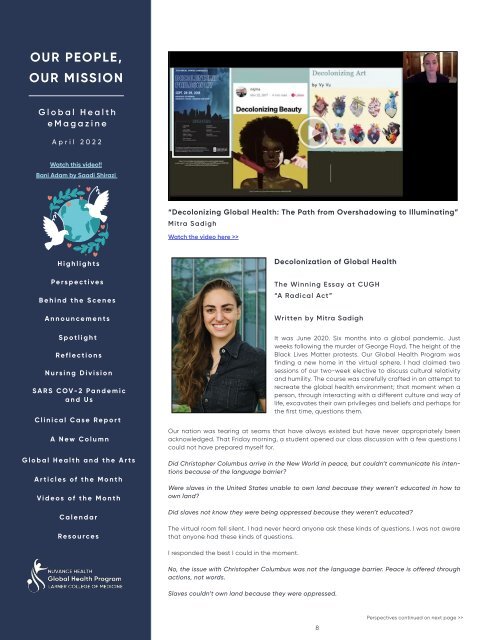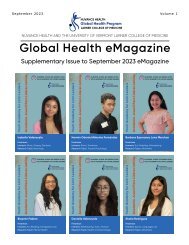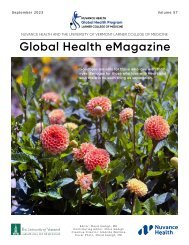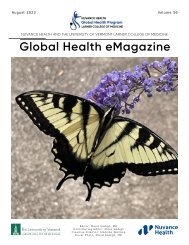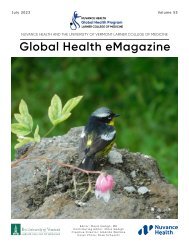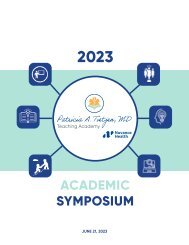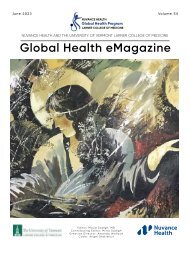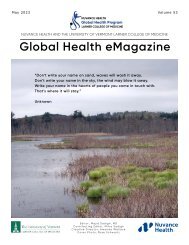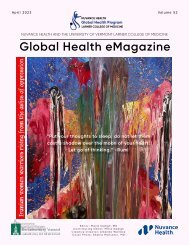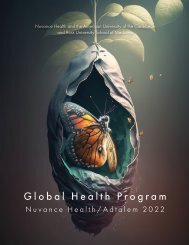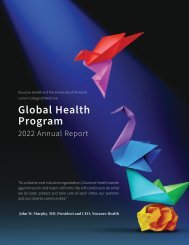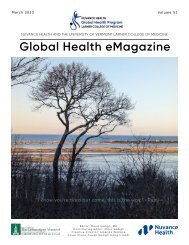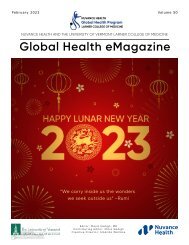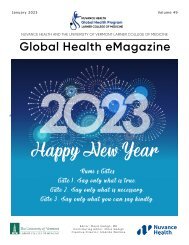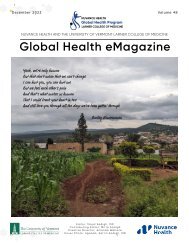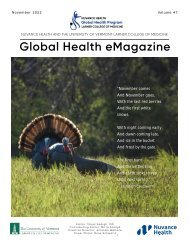April_eMagazine Volume 40
You also want an ePaper? Increase the reach of your titles
YUMPU automatically turns print PDFs into web optimized ePapers that Google loves.
OUR PEOPLE,<br />
OUR MISSION<br />
Global Health<br />
<strong>eMagazine</strong><br />
<strong>April</strong> 2022<br />
Watch this video!!<br />
Bani Adam by Saadi Shirazi<br />
“Decolonizing Global Health: The Path from Overshadowing to Illuminating”<br />
Mitra Sadigh<br />
Watch the video here >><br />
Highlights<br />
Perspectives<br />
Behind the Scenes<br />
Announcements<br />
Decolonization of Global Health<br />
The Winning Essay at CUGH<br />
“A Radical Act”<br />
Written by Mitra Sadigh<br />
Spotlight<br />
Reflections<br />
Nursing Division<br />
SARS COV-2 Pandemic<br />
and Us<br />
Clinical Case Report<br />
A New Column<br />
Global Health and the Arts<br />
Articles of the Month<br />
Videos of the Month<br />
Calendar<br />
Resources<br />
It was June 2020. Six months into a global pandemic. Just<br />
weeks following the murder of George Floyd. The height of the<br />
Black Lives Matter protests. Our Global Health Program was<br />
finding a new home in the virtual sphere. I had claimed two<br />
sessions of our two-week elective to discuss cultural relativity<br />
and humility. The course was carefully crafted in an attempt to<br />
recreate the global health environment; that moment when a<br />
person, through interacting with a different culture and way of<br />
life, excavates their own privileges and beliefs and perhaps for<br />
the first time, questions them.<br />
Our nation was tearing at seams that have always existed but have never appropriately been<br />
acknowledged. That Friday morning, a student opened our class discussion with a few questions I<br />
could not have prepared myself for.<br />
Did Christopher Columbus arrive in the New World in peace, but couldn’t communicate his intentions<br />
because of the language barrier?<br />
Were slaves in the United States unable to own land because they weren’t educated in how to<br />
own land?<br />
Did slaves not know they were being oppressed because they weren’t educated?<br />
The virtual room fell silent. I had never heard anyone ask these kinds of questions. I was not aware<br />
that anyone had these kinds of questions.<br />
I responded the best I could in the moment.<br />
No, the issue with Christopher Columbus was not the language barrier. Peace is offered through<br />
actions, not words.<br />
Slaves couldn’t own land because they were oppressed.<br />
8<br />
Perspectives continued on next page >>


